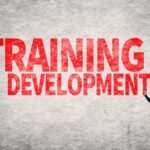Interview With Mr. Steve Browne
Interviewer: Good day, Mr. Browne. Thank you for joining us for this interview. As a prominent HR thought leader and author, you have provided valuable insights into the field of human resources. Could you share with us some key principles and approaches that have shaped your work in HR?
Steve Browne: Good day, and thank you for having me. It’s a pleasure to discuss my work in the field of human resources. One key principle that has shaped my approach is the importance of putting people at the center of HR practices. HR should be about building relationships, supporting employees, and creating a positive work environment. This requires empathy, active listening, and a genuine desire to understand and meet the needs of individuals within the organization.
Another important approach is promoting a culture of inclusion and diversity. By fostering an inclusive environment, where everyone feels valued and respected, organizations can tap into the diverse perspectives and talents of their workforce. This leads to greater innovation, improved decision-making, and a stronger sense of belonging for all employees.
Furthermore, I strongly believe in the power of continuous learning and development. HR professionals should actively invest in their own growth and encourage a culture of learning throughout the organization. This includes providing opportunities for skill-building, career development, and knowledge sharing.
Interviewer: The HR profession continues to evolve, influenced by changing workplace dynamics and emerging trends. In your view, what are some of the key challenges and opportunities HR professionals face today?
Steve Browne: Indeed, the HR profession is constantly evolving, and HR professionals face a range of challenges and opportunities. One key challenge is ensuring that HR practices and policies keep pace with societal changes and evolving expectations. This includes addressing issues such as work-life balance, mental health support, and workplace flexibility. HR professionals must adapt and advocate for practices that meet the changing needs of employees.
Another challenge is navigating the increasing use of technology and data in HR. HR professionals need to embrace technology as a tool to streamline processes, enhance decision-making, and improve the employee experience. However, it is crucial to balance the use of technology with human interaction and maintain a personal touch in HR practices.
An opportunity for HR professionals lies in leveraging data and analytics to make informed decisions. HR can use data to identify trends, measure the impact of HR initiatives, and uncover insights that drive organizational success. By becoming more data-driven, HR professionals can contribute strategically to the organization and gain credibility as trusted advisors.
Interviewer: The COVID-19 pandemic has presented unprecedented challenges for organizations and their HR functions. In your experience, what have been some key lessons learned from this crisis?
Steve Browne: The COVID-19 pandemic has indeed been a transformative period for organizations and HR functions. One key lesson learned is the importance of adaptability and agility. Organizations and HR teams had to quickly pivot and implement remote work arrangements, adjust policies and procedures, and find new ways to support employees. This crisis has highlighted the need for HR professionals to be flexible, resilient, and responsive to changing circumstances.
Additionally, the pandemic has emphasized the importance of clear and timely communication. HR professionals played a critical role in disseminating information, providing guidance, and maintaining a sense of connection and trust with employees. Effective communication, transparency, and empathy have been vital in helping organizations navigate the uncertainties and challenges of the crisis.
Furthermore, the pandemic has underscored the value of prioritizing employee well-being and mental health. HR professionals have had to develop strategies to support remote workers, address increased stress and anxiety, and provide resources for maintaining work-life balance. This crisis has emphasized the importance of caring for the holistic well-being of employees.
Interviewer: Thank you, Mr. Browne, for sharing your insights and expertise in the field of HR. Your focus on people, inclusion, and continuous learning provides valuable guidance for HR professionals navigating the evolving workplace landscape.
Steve Browne: You’re most welcome. It has been a pleasure discussing these important topics. I remain committed to championing HR practices that prioritize the well-being of employees, foster inclusive cultures, and contribute to the success of organizations.


































